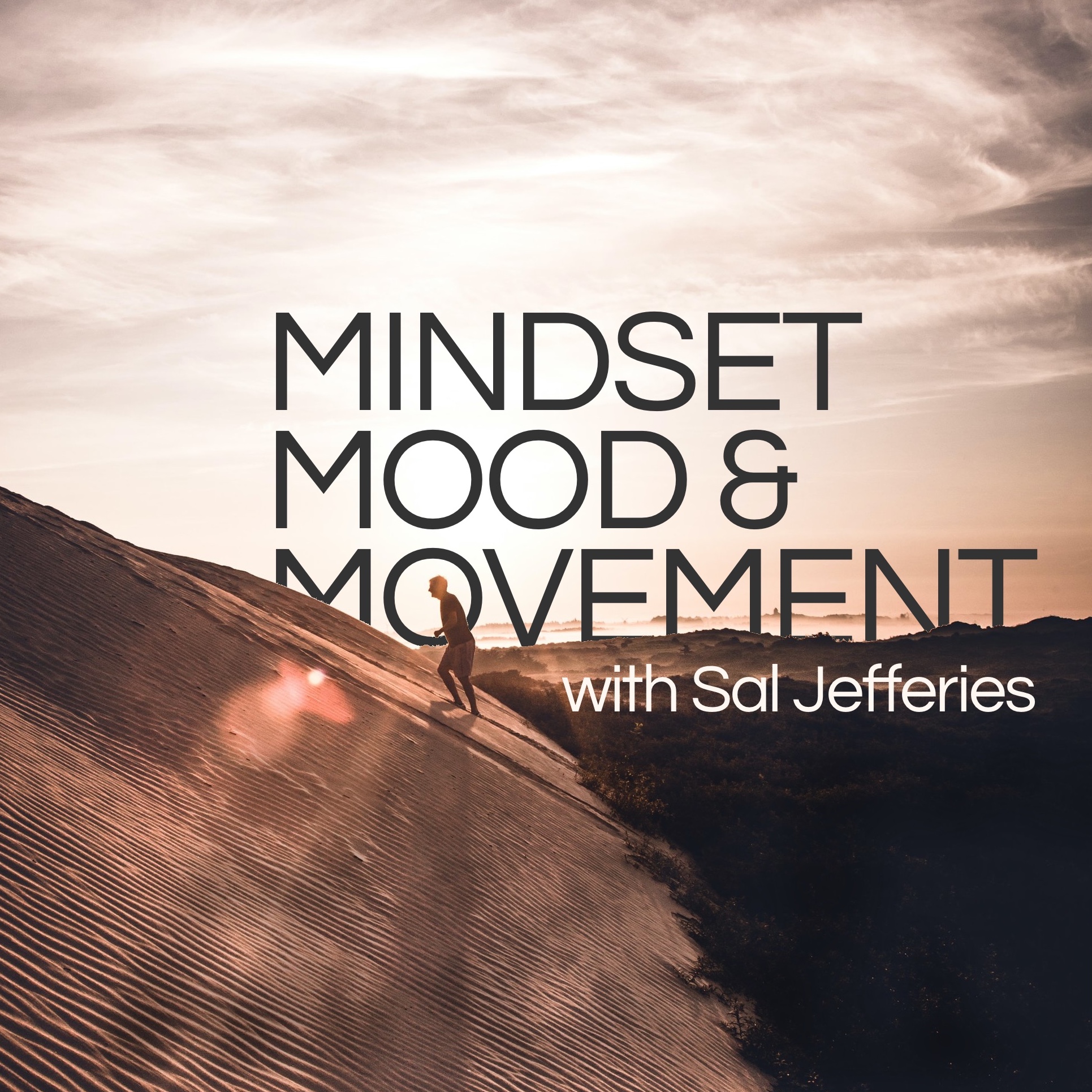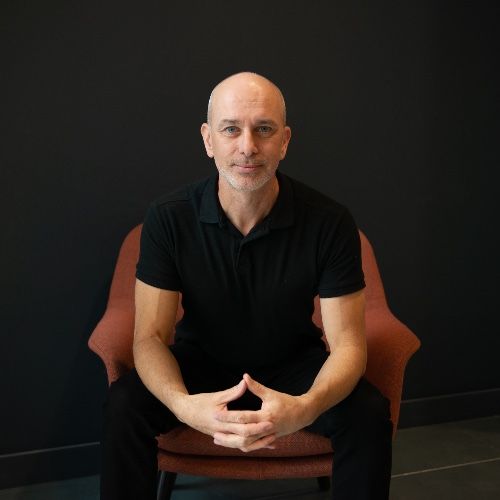Episode 62
Letting Go of Control: The Key to Reducing Worry
Worry is a natural phenomenon that many experience, but excessive worrying can be draining and distracting. In this episode, I discuss the importance of understanding worry as a signal of what we care about as well as the need to differentiate between what we can control and what we cannot.
By letting go of the need to control everything - particularly events outside of our personal responses - we can reduce the heaviness of worrying and focus on actionable steps. I also invite you to understand that worry and care are in a spectrum. When we shift perspective from worry to care, this can empower us to take positive action. Do let me know if you apply any of these insights into strategies.
Key points:
- Worry is a normal human condition that can be draining and distracting if excessive.
- It's essential to distinguish between what we can control and what we cannot.
- Recognising that worry often stems from a desire to care about important aspects of life.
- Shifting focus from worry to care can help us take positive actions that matter.
- Understanding that worrying is a process can help alleviate the pressure of labelling ourselves as 'worriers'.
- Using worry as a signal to identify what we genuinely care about can lead to meaningful actions.
Transcript
Welcome to Mindset, Mood and Movement.
Host:A systemic approach to human behavior, performance and well being.
Expert:I wish I didn't worry so much.
Expert:Something that's been said to me by many people I know and work with, and I've said it to many of my dear friends, and I think it happens to all of us, right?
Expert:We worry.
Expert:It's a normal human condition.
Expert:But if you worry too much, it can be draining, it can be exhausting, and it can take your attention away from the good stuff.
Expert:So in this short episode, going to talk about worry because it's sneaky, it's kind of everywhere.
Expert:It's not as intense as anxiety, it's not as draining as fear, but it's on the same pathway.
Expert:So let's understand it.
Expert:Worry is our innate ability to look ahead at potential things going on and think, oh, what about that?
Expert:And what could happen there?
Expert:So we are preempting, if you will, it's the nervous system's ability to go into the future, come up with some ideas about what might happen, and be prepared.
Expert:It's on the same neurological pathway as anxiety, as fear, and it's there to protect us.
Expert:But in today's world, there are so many moving parts in personal lives, in business life, and of course in the world and the environment and the geopolitical situation.
Expert:There are many things to worry about and they're valid.
Expert:So how can we get a handle on it?
Expert:Okay, so I think we need to understand that it's natural, it's the first thing.
Expert:If we're resisting those worrying thoughts and feelings, then the resistance will create often more.
Expert:I've said this many times, but resistance is suffering.
Expert:So worrying is a normal phenomenon.
Expert:However, keeping it in check, keeping it balanced, keeping your attention on what is under your control and what isn't is very important.
Expert:And here's the thing, so many things in the world are not under our control.
Expert:We can control a small amount of our actions and a small amount of our thinking, but a lot of things are moving around and happening that we can't control.
Expert:Now, it doesn't mean that we don't need to be concerned.
Expert:But being clear on what you can control, what your inputs are, what your actions are, and where things will happen and you'll have to respond to them accordingly.
Expert:Very important.
Expert:So letting go of the need to control everything is going to dial down worry by a long shot.
Expert:And I say this from personal experience.
Expert:I used to worry about everything and I still worry about quite a few things.
Expert:But it's catching that and realizing, yes, what can I control, what can I influence, what can I do and what do I need to allow and create some space for?
Expert:So that's the first strategy which is very helpful on taking down the worry experience.
Expert:Now the second thing here is misunderstanding that worry is also got a.
Expert:It's got a positive quality.
Expert:And I find worry tells us about something we care about.
Expert:So we were to draw a spectrum and on one end you can put worry, maybe it's this end, on this end you could put care.
Expert:So on that spectrum we've got, let's say, the shadow side of worry.
Expert:You know, oh, what's this going to happen?
Expert:How am I going to deal with that?
Expert:Money worries, business worries, all that sort of thing.
Expert:On the other side is the care, because it's the same spectrum, right?
Expert:It's like I care about my work, my impact, my family, my health.
Expert:I care, I genuinely care.
Expert:It matters to me.
Expert:So when you shift your attention from the worry side to the care side of this spectrum, then you can do something differently.
Expert:So if you're worrying about your health, it's because you care about it, you can choose to take action.
Expert:If you're worrying about the state of your relationship, maybe you can talk, communicate better because it matters to you.
Expert:If you're worrying about some of the things you have to do at work, you can check it around the control, not control, quality issue I've already covered.
Expert:But then do I care?
Expert:Do I care that I do good work and make an impact in the world?
Expert:If I do well, then let's really apply ourselves.
Expert:So the distinctions are this worry is a natural phenomenon.
Expert:Worry comes about often from trying to control the uncontrollables.
Expert:But it is also a great signal to show us where we care about something and where we can apply ourselves more.
Expert:So if you are a worrier and be careful of the label, by the way, because worrying is a process.
Expert:Be careful of calling yourself a worry.
Expert:But if you worry a lot, then you can use those three checkpoints, checking in, knowing it's normal rather than resisting it, knowing you need to look for control or not control and understanding that.
Expert:And thirdly, do you care about something?
Expert:Can you really apply yourself and make a positive impact?
Expert:And then the worry experience becomes a lot more manageable and something you can work with.
Expert:Now, I hope that has brought something different shift in your system.
Expert:Try it on.
Expert:As with all of these videos I do, I love to hear when people make changes and I often do.
Expert:So do share it, you know, privately or in the, on the social media.
Expert:Platform you found this.
Expert:Let me know if you've applied any of these concepts and how the worry experience was for you.
Expert:Did it change?
Expert:Do you care more?
Expert:Are you more focused?
Expert:Let me know till the next time.
Expert:Take care.
Host:Thank you so much for listening.
Host:If you enjoyed the episode please subscribe and if a friend would benefit from hearing this do send it on to them as well.
Host:If you would like to get in touch yourself then you can go to my website which is SalJeffries.com spelled S A L J E F F E R I e s Sal jeffries.com hit the get in touch link and there you can send me a direct message.
Host:If you'd like to go one step further and learn whether coaching can help you overcome a challenge or a block in your life, then do reach out and I offer a call where we can discuss how this may be able to help you.
Host:Until the next time take care.


